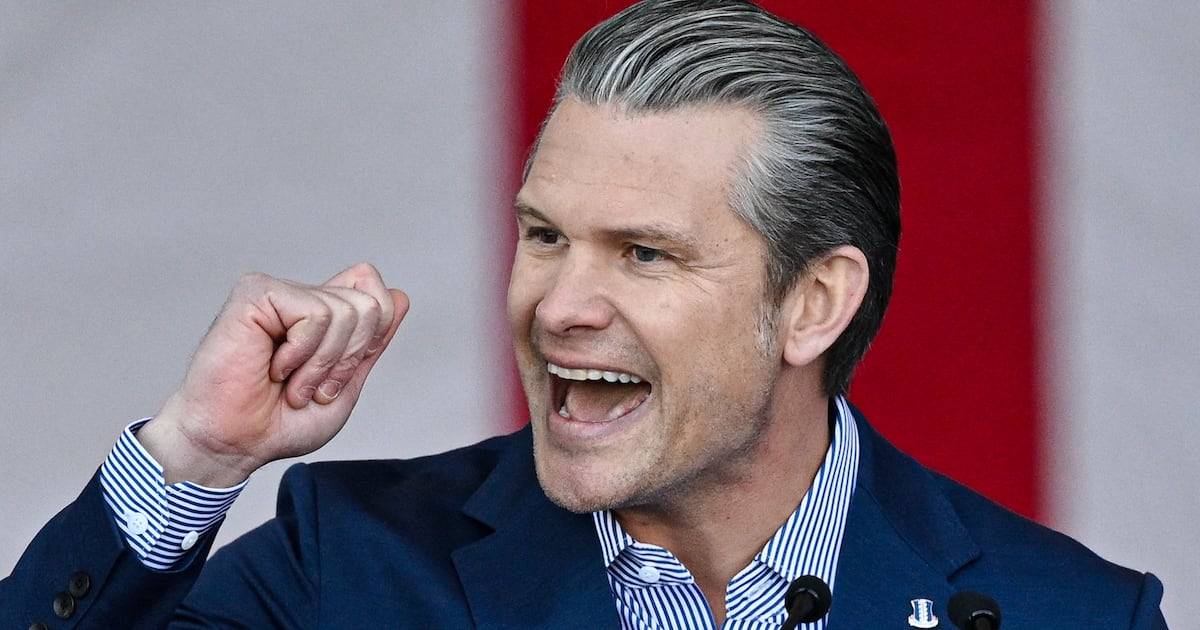It’s not just that he’s silent in public. Facebook CEO and co-founder Mark Zuckerberg declined to face his employees on Tuesday to explain the company’s role in a widening international scandal over the 2016 election.
Facebook employees on Tuesday got the opportunity for an internal briefing and question-and-answer session about Facebook’s role with the Trump-aligned data firm Cambridge Analytica. It was the first the company held to brief and reassure employees after, ahead of damaging news reports, Facebook abruptly suspended Cambridge Analytica. The Q&A session was first reported by The Verge.
But Zuckerberg himself wasn’t there, The Daily Beast has learned. Instead, the session was conducted by a Facebook attorney, Paul Grewal, according to a source familiar with the meeting. That was the same approach the company used on Capitol Hill this past fall, when it sent its top attorney, Colin Stretch, to brief Congress about the prevalence of Russian propaganda, to include paid ads and inauthentic accounts, on its platform.
Nor, The Daily Beast has learned, did chief operating officer Sheryl Sandberg attend the internal town hall.
“Mark, Sheryl and their teams are working around the clock to get all the facts and take the appropriate action moving forward, because they understand the seriousness of this issue. The entire company is outraged we were deceived. We are committed to vigorously enforcing our policies to protect people’s information and will take whatever steps are required to see that this happens,” a Facebook spokesperson told The Daily Beast.
Zuckerberg has been publicly silent since the Observer and the New York Times reported on Saturday that Facebook has for years been aware that a third-party app, billing itself as collecting user data for research purposes, exploited sufficiently weak privacy settings on unsuspecting user accounts to accumulate 50 million profiles. The app designer provided the data to Cambridge Analytica, the analytics and messaging firm controlled by Donald Trump allies.
Facebook reportedly asked Cambridge Analytica to delete the data in 2015, but did not verify that the deletion occurred. Cambridge Analytica subsequently received approximately $6 million from the Trump campaign to aid in its messaging and voter targeting. (The company had additional contracts worth millions of dollars with pro-Trump political action committees.)
Facebook, in what the company has described as its standard assistance to political campaigns, provided the Trump camp with sales and ads specialists during the waning weeks of the race. That aid occurred even after Facebook reportedly in August 2016 sent its lawyers to Cambridge Analytica contractors instructing them to “immediately” delete the user data “obtained and used without permission.”
It’s unclear what exactly Cambridge Analytica gave the Trump campaign for its money. Wired has reported that Cambridge sent three staffers to the Trump camp’s San Antonio-based digital operations office. Those staffers, Wired reported, “provided useful analysis of data about the American electorate,” but not the raw data itself – data likely to include what the 2015 researcher harvested on an industrial scale.
The Trump campaign has downplayed Cambridge Analytica’s high-priced assistance in an interview with The Daily Beast’s Betsy Woodruff. Brad Parscale, the Trump campaign’s 2016 digital director—and 2020 campaign manager—has told multiple outlets that the firm’s data was all but useless.
Perhaps. But either way, both Cambridge Analytica and the 2016 election have become millstones around Facebook’s neck.
Throughout 2016 and 2017, Facebook has publicly diminished any role it played in the election. Zuckerberg said in the days immediately after the vote that it was “pretty crazy” to believe that “fake news on Facebook… influenced the election in any way.”
Then, in September, Facebook conceded that it had found 470 accounts that promoted roughly 3,000 paid ads pushing Russian propaganda. That propaganda’s reach from organic users – most of them unsuspecting Americans – has been substantial. Facebook in early October estimated the propaganda on its platform had reached ten million Americans. By the end of the month, that estimate was 126 million Americans. And within days of that estimate, it told Congress that the real total was 150 million Americans.
The propaganda had real-world consequences. Surreptitious Russians posing as Americans on Facebook were able to concoct or insert themselves into anti-immigrant rallies in multiple cities, and also, according to special prosecutor Robert Mueller, both pro- and anti-Trump campaign events. Last month, Mueller indicted 13 Russians tied to a Kremlin-connected troll farm for spreading the propaganda on Facebook, Twitter and other social-media platforms.
Zuckerberg is now facing demands from the British Parliament to explain the non-consensual exfiltration of tens of millions of user profiles to Cambridge Analytica. A parliamentary committee chairman, Damian Collins, has blasted Facebook for previously providing “misleading” evidence and having “consistently understated the risk” of user data falling into the hands of people or services users did not consciously authorize.
Under mounting pressure, Facebook announced Monday that it has hired auditors to determine if the Facebook data collected by Cambridge Analytica has in fact been purged. “If this data still exists, it would be a grave violation of Facebook’s policies and an unacceptable violation of trust and the commitments these groups made,” it announced in a blog post Monday.
Senator Mark Warner, the top Democrat on the intelligence committee Russia investigation, has said he wants Facebook to return to the Hill for additional testimony. He called Monday night on Cambridge Analytica to do the same.
But Bloomberg reported that both Zuckerberg and Sandberg are expected to remain publicly quiet while the audit proceeds. Thus far, that silence extends to Facebook’s own employees.






